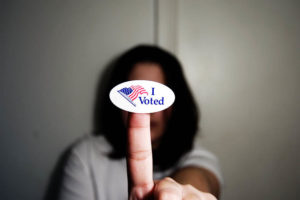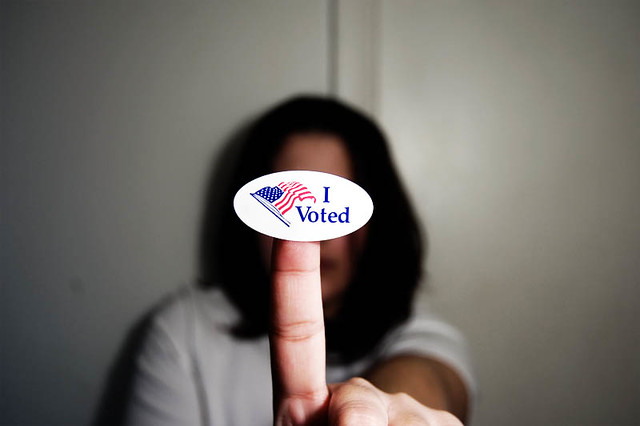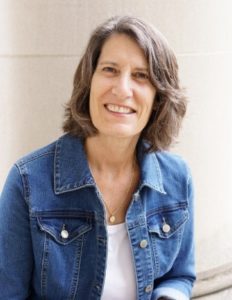 I imagine August 18, 1920, Wednesday, a sultry summer day in North Carolina. My grandmother, Wanda Margaret Robbins Bunting, perhaps the strongest woman I’ve ever known—who raised the second strongest, my mother—would have likely been at work as a nurse in High Point Hospital, where she’d recently graduated with her R.N. degree. Her young husband Ernest, home from the war two years earlier, would have also been working and then later that evening would have stood beside her in the kitchen putting dinner on the table. No children had come along yet, but they would.
I imagine August 18, 1920, Wednesday, a sultry summer day in North Carolina. My grandmother, Wanda Margaret Robbins Bunting, perhaps the strongest woman I’ve ever known—who raised the second strongest, my mother—would have likely been at work as a nurse in High Point Hospital, where she’d recently graduated with her R.N. degree. Her young husband Ernest, home from the war two years earlier, would have also been working and then later that evening would have stood beside her in the kitchen putting dinner on the table. No children had come along yet, but they would.
She most likely wouldn’t have been celebrating, just like she wouldn’t have been marching in the days and weeks prior to that day. She was too busy living. But I can see her the next morning at breakfast, leaning over the daily newspaper to read the latest headline, something inside of her turning with joy. She would have voted at her first chance, just as she voted every year I ever knew her until her age—94 years—and physical limitations kept her from the polls.
She didn’t talk about women’s equality: she lived it. She lived it in her insistence that the women in her family receive educations, hold jobs, earn money and save it. She lived it in the way she made sure Ernest did his part to raise the children and keep the house clean and comfortable. They were equal partners in this thing called marriage, and she made sure he never forgot it. She owned the kitchen and her household, but she also owned her place in the workforce and in society. Until she was 75 years old, she continued a nursing career that took her eventually to Baltimore and Union Memorial Hospital and then back home to Randolph Hospital.
When I think of my grandparents, I think of them that way—as partners. Equals. At times she seemed to dominate, but he in his gentle way could smile, take her hand, and remind her that he was in this life with her, beside her. Equals.
I hold her up today, almost 100 years later, as my guide for how to live.
Today, August 26, is Women’s Equality Day, which recognizes and celebrates the passing of the Nineteenth Amendment in 1920, at last giving American women the right to vote.
Three-fourths majority—or 36 states—was needed to ratify the amendment before it could become law. By mid-1920, 35 states had ratified, but four—including North Carolina—had refused to accept the amendment, citing such reasons as women who became involved in politics would neglect the home and women would be forced into roles they did not want, such as having to serve on juries.
Tennessee became the 36th state when 24-year-old legislator Harry T. Burn, at the urging of his mother, cast the deciding vote in favor of ratification.
Though the Nineteenth Amendment, which gives women the right to vote, was officially ratified on August 18, 1920, the vote had not yet been certified. Not until August 26, 1920, did U.S. Secretary of State Bainbridge Colby sign the official proclamation that ended the hundred-year struggle for voting rights.
The North Carolina General Assembly finally ratified the Nineteenth Amendment in 1971.
Also in 1971, Representative Bella Abzug sponsored a bill in the U.S. Congress to designate August 26 as “Women’s Equality Day.”
In 1920, 36% of women voted in the presidential election. The low number was likely due to barriers at the polls, including literacy tests, residential requirements, and the lingering belief that women should not have a voice in elections. According to the U.S. Census Bureau, in 2018, 55% of women voted, compared with 51.8% of men. In 2014, women’s turnout was 43.0% and men’s was 40.8.
Just think of the difference we make. But just think of the difference we could make.
Throughout the years, women at the polls have effected changes in laws and policies regarding workplace, home, family, children, health care, domestic violence, reproductive rights, and much more. But daily, those rights and policies are being challenged, and many more issues need to be addressed.
As recently as the 1990’s, I have known women who had to sneak out of the house to attend college classes in the community where I was teaching, because their husbands did not want them to be educated. But they did sneak out, and they did get educated. Just last year at the polls, I watched women and men standing together inside a single voting booth, and I shudder to think what was going on. He might not have been telling her how to vote, but that reality has existed for many, many women through our long history of voting.
Ninety-nine years ago, my grandmother stood behind a voting booth and cast her vote for the first time. She’d go on to cast it 74 more years before she died.
She taught me how to believe in myself. She taught me that I mattered in a country where mostly white male politicians made laws to attempt to shape how I would live, where a society for another ninety-nine years would try to tell me how to act, how to dress, how to work, how to speak and write, how to be less than a man.
I’ve been lucky to have been surrounded by strong women and men who have loved them. Many of them were family; many of them were not.
The right to vote was hard fought and hard won. Yet, in 2018, 45% of women in this country did not exercise their right to vote.
What on earth were they thinking?
Barbara Presnell lives and writes in Lexington, North Carolina.


There are no comments
Add yours